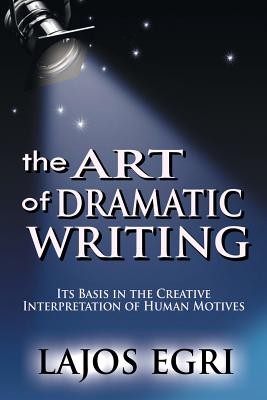
- We will send in 10–14 business days.
- Author: Lajos Egri
- Publisher: www.bnpublishing.com
- ISBN-10: 9562915867
- ISBN-13: 9789562915861
- Format: 15.2 x 22.9 x 1.9 cm, minkšti viršeliai
- Language: English
- SAVE -10% with code: EXTRA
Reviews
Description
Amid the hundreds of "how-to" books that have appeared in recent years, there have been very few which attempted to analyze the mysteries of play-construction. This book does that - and its principles are so valid that they apply equally well to the short story, novel and screenplay. Lajos Egri examines a play from the inside out, starting with the heart of any drama: its characters. For it is people - their private natures and their inter-relationships - that move a story and give it life. All good dramatic writing depends upon an understanding of human motives. Why do people act as they do? What forces tranform a coward into a hero, a hero into a coward? What is it that Romeo does early in Shakespeare's play that makes his later suicide seem inevitable? Why must Nora leave her husband at the end of A Doll's House? These are a few of the fascinating problems which Egri analyzes. He shows how it is essential for the author to have a basic premise - a thesis, demonstrated in terms of human behavior - and to develop his dramatic conflict on the basis of that behavior. Premise, character, conflict: this is Egri's ABC. His book is a direct, jargon-free approach to the problem of achieving truth in a literary creation.
EXTRA 10 % discount with code: EXTRA
The promotion ends in 23d.18:23:47
The discount code is valid when purchasing from 10 €. Discounts do not stack.
- Author: Lajos Egri
- Publisher: www.bnpublishing.com
- ISBN-10: 9562915867
- ISBN-13: 9789562915861
- Format: 15.2 x 22.9 x 1.9 cm, minkšti viršeliai
- Language: English English
Amid the hundreds of "how-to" books that have appeared in recent years, there have been very few which attempted to analyze the mysteries of play-construction. This book does that - and its principles are so valid that they apply equally well to the short story, novel and screenplay. Lajos Egri examines a play from the inside out, starting with the heart of any drama: its characters. For it is people - their private natures and their inter-relationships - that move a story and give it life. All good dramatic writing depends upon an understanding of human motives. Why do people act as they do? What forces tranform a coward into a hero, a hero into a coward? What is it that Romeo does early in Shakespeare's play that makes his later suicide seem inevitable? Why must Nora leave her husband at the end of A Doll's House? These are a few of the fascinating problems which Egri analyzes. He shows how it is essential for the author to have a basic premise - a thesis, demonstrated in terms of human behavior - and to develop his dramatic conflict on the basis of that behavior. Premise, character, conflict: this is Egri's ABC. His book is a direct, jargon-free approach to the problem of achieving truth in a literary creation.


Reviews